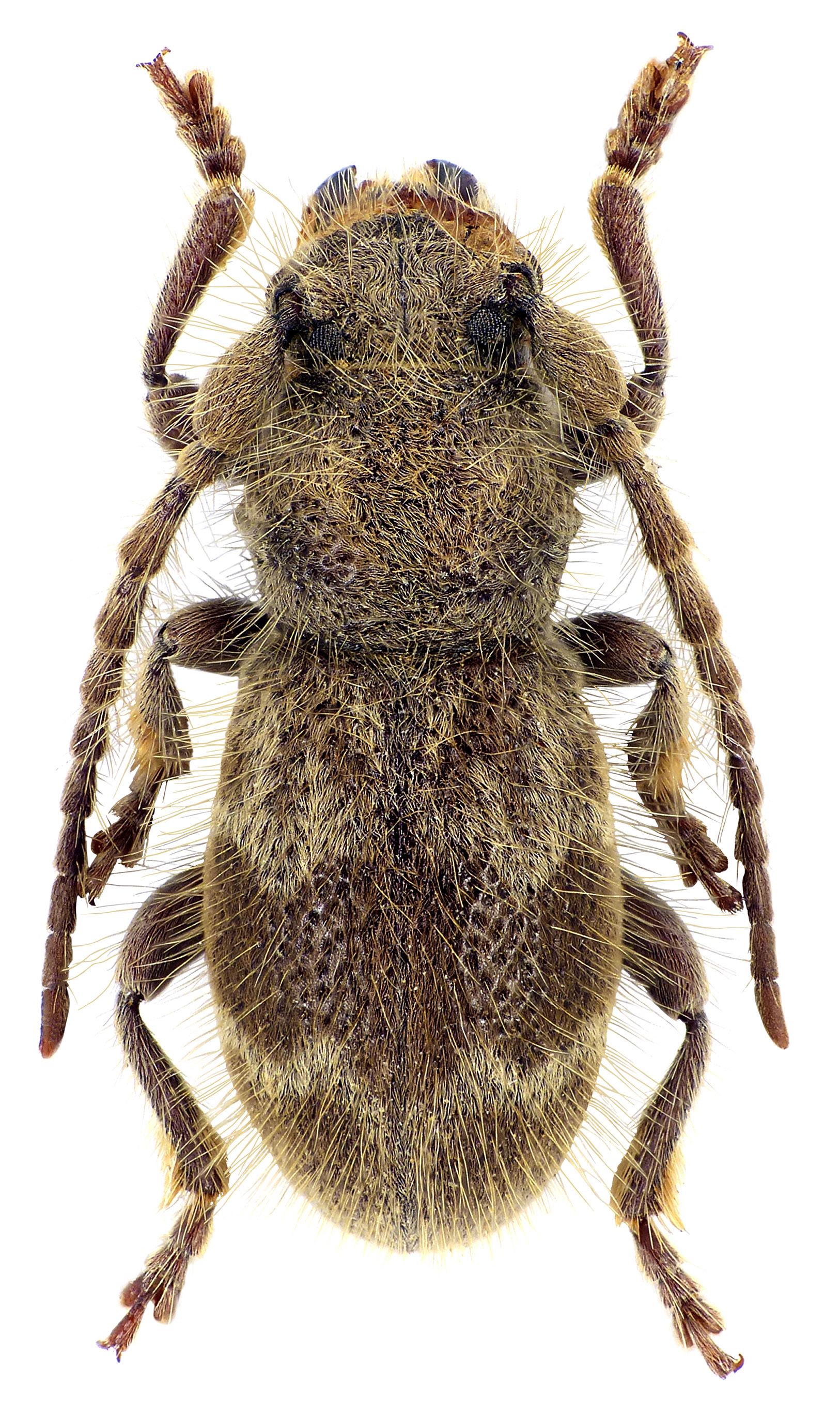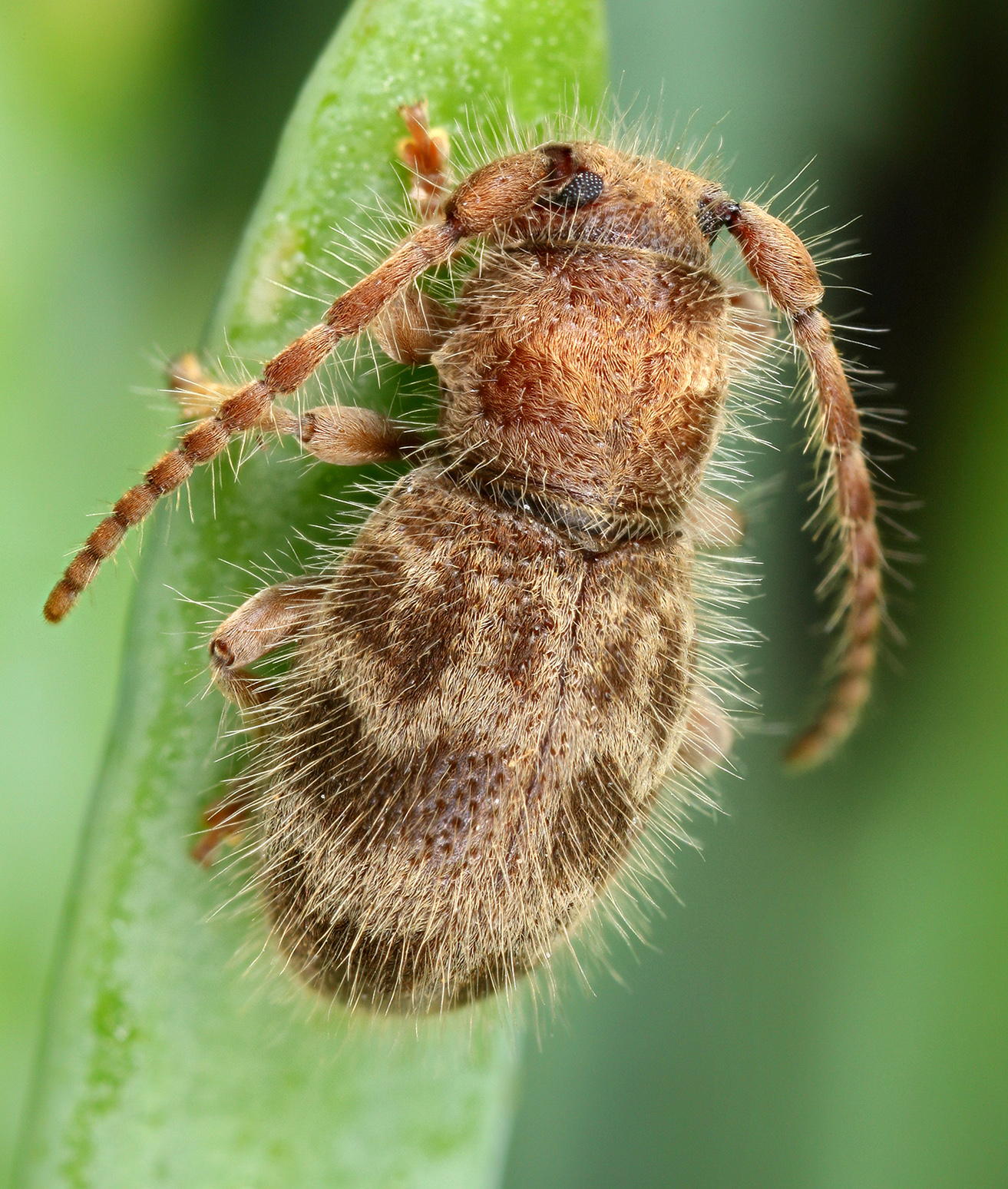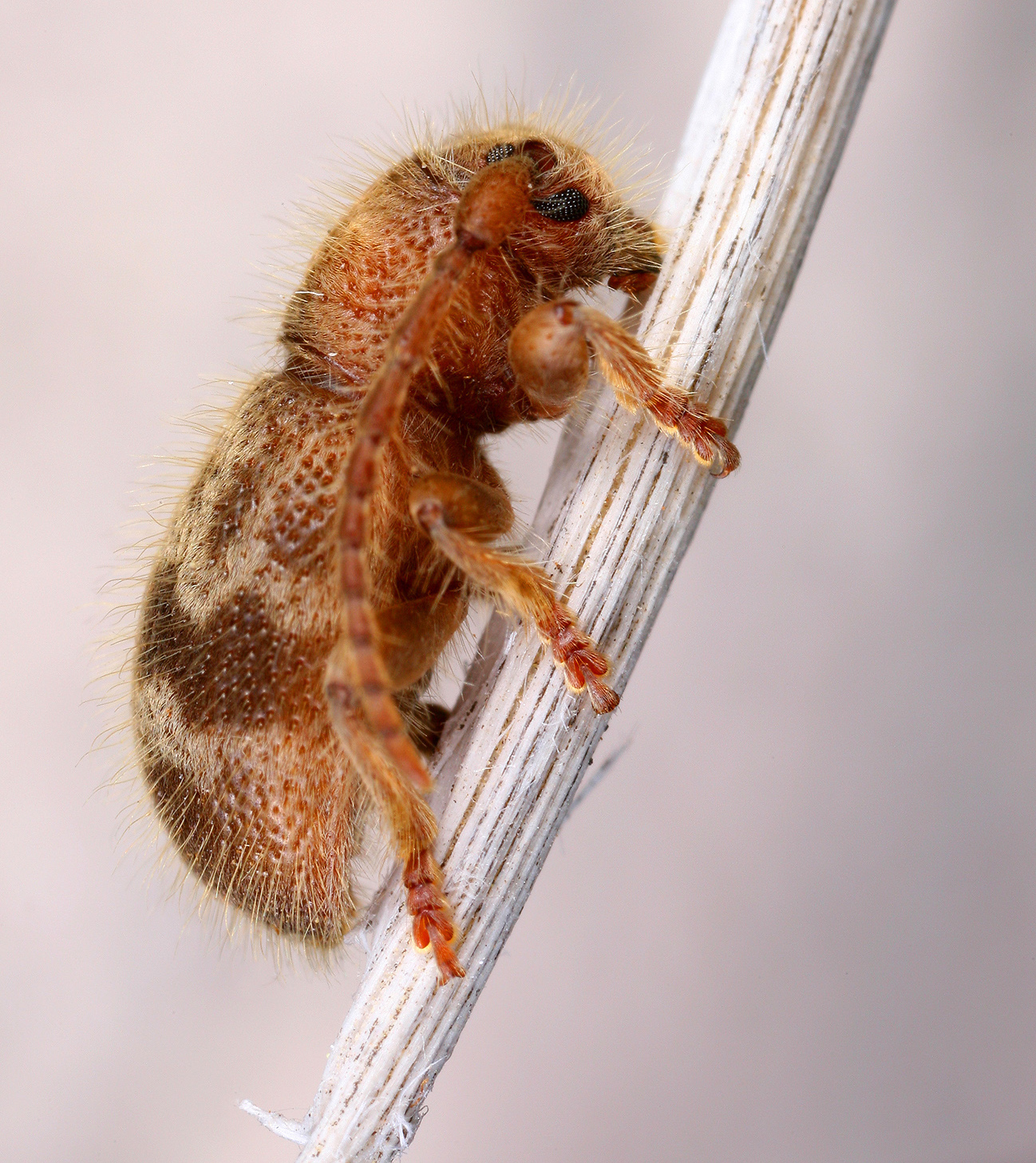Parmena pubescens, a species occuring in almost entire Mediterranean region, has been described as Lamia (Dorcadion) pubescens from Algeria by Johan Wilhelm Dalman in 1817 [✧].
Its East Mediterranean subpecies, P. pubescens pilosa, has been described from Peloponnese (Greece) as Parmena pilosa by Auguste Gaspard Brullé in 1832 [✮].
The position of the taxon pilosa is the subject of debate and controversy, and by some authors it is considered a separate species. P. pubescens pilosa develops in stalks of herbaceous plants
and on the dead stalks of the host plants it can be also frequently found. It is a nocturnal species, and therefore, it is necessary to inspect the plants at night.
| Body length: | 5 - 10 mm |
| Life cycle: | 1 year |
| Adults in: | April - October |
| Host plant: | polyphagous in herbaceus plants (Euphorbia, Crithmum) [❖] |
| Distribution: | Albania, Bosnia and Herzegovina, Croatia, Greece, Montenegro, Slovenia |
The depicted mounted beetles were collected at night on a host plant (Euphorbia characias wulfenii) in
Sevid environs (60 m a.s.l., Split-Dalmatia county, Dalmatia, Croatia) on July 29, 2012. The living specimens were photographed on the rock shamphire (Crithmum maritimum)
growing in a narrow zone next to the sea in Grebaštica village environs (Šibenik-Knin county, Croatia) on June 20, 2011.
Collected by David Navrátil and Nikola Rahmé
[✧]
J.W. Dalman in Schönherr C.J.:
Appendix ad C. J. Schönherr Synonymiam Insectorum. Descriptiones Novarum Specierum Insectorum.
Scaris, Lewerentziana 1 (3): 1-266, 1817.
[download  ]
]
[✮]
Brullé A.G.:
Expédition scientifique de Morée. Section des Sciences Physiques. Tome III. - 1.re Partie. Zoologie. Deuxième Section. - Des animaux articulés.
F. G. Levrault, Paris 3 (1/2): 1-400, 1832-1836.
[download  ]
]
[❖]
Plewa R., Łoś K., Górski P.:
Nowe dane o rozmieszeniu, biologii i behawiorze gatunków z rodziny kózkowatych (Coleoptera, Cerambycidae) z Grecji.
[New data on the distribution, biology and behavior of some longhorn beetles (Coleoptera, Cerambycidae) from Greece.]
Elateridarium 5: 232-247, 2011.
[download  ]
]




